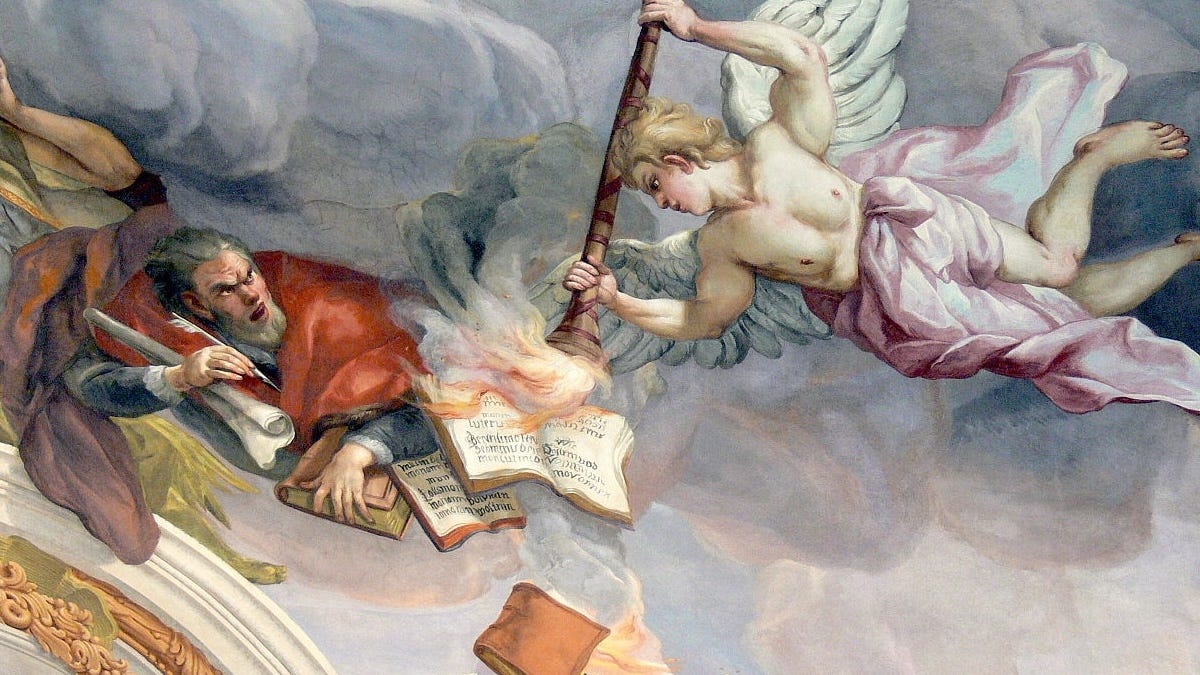Editors’ Notes
The following is an exclusive translation taken from St Robert Bellarmine’s Fifth Controversy (On the Clergy). The thesis of the wider question is as follows:
“The right to elect the Pope and other ministers of the Church does not belong to the people by divine law.”
This particular text is about what “the people” are to do in the face of heretical or erroneous preaching. It comes some way into the chapter, but stands apart from the other matters discussed in the chapter.
Some key points:
Even the simple and unlearned are able to recognise a contradiction between a) what they are being taught at any given moment, and b) what they had previously been taught, and what the rest of the Church is being taught at that given moment.
In the event of such a contradiction, they are to adhere to what they had previously received.
While the formalised “recognise and resist system” is flawed and severely problematic, this text does justify a practical “adhere to tradition and leave questions for the future” approach on the part of “the people.”
However, speaking of the people: “We should anathematise those who teach new doctrines that are contrary to what has been preached before.”
He states that the people cannot “depose a false pastor if he is a bishop or substitute another in his place,” and that “the custom of the Church has always been that heretical bishops are deposed by councils of bishops or by the supreme pontiffs.” As discussed in the commentary and application below, sedevacantists do not depose anybody. As Wernz-Vidal say, we accept that “a declaratory sentence of the crime, which as merely declaratory, should not be rejected.”
However, parts of the text may appear to support certain systems or theories about the current crisis at one point, and other systems at another. For this reason, after presenting the text, we will then present comments and application for each section.
Fifth Controversy: The Members of the Church – On the Clergy
Book I, Chapter VII
Available from Google Books.
Objection:
The second argument is as follows:
The Lord commands (John 10) that we do not listen to the voice of strangers. Again, he instructs (Matthew 7) to flee from false prophets, and the Apostle (Galatians 1) orders that those who teach anything beyond the Gospel should be accursed.
Therefore, the Christian people have a divine mandate by which they are bound to seek out and call upon good pastors, and to reject harmful ones.
The Answer
I respond that the people indeed ought to discern the true prophet from the false, but by no other rule than by carefully attending to whether the one who preaches says things contrary to those taught by his predecessors, or to those taught by other lawful pastors, and especially by the Apostolic See and the principal Church; for the people are commanded to listen to their own pastors: Luke 10: “He that heareth you, heareth me.” And Matthew 23: “What they say, do” (Luke 10:16, Matthew 23:3).
Therefore, the people should not judge their pastor unless they hear something new and contrary to the doctrine of other pastors.
Furthermore, this is what Paul advises in Galatians 1: that we should anathematise those who teach new doctrines that are contrary to what has been preached before.
Moreover, since the people are unlearned, they cannot otherwise judge the doctrine of their pastor.












No comments:
Post a Comment